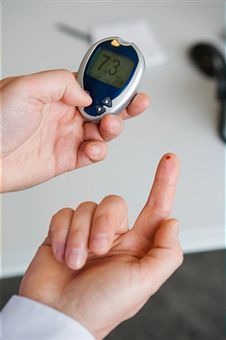
What is hyperglycemia? Does it mean diabetes? How to manage it? What are the precautions to be taken? What are the signs and symptoms? What is the cause of this disease? How to treat it? How can homeopathy help you? All of this answered, in this post and of course our doctors always there to help you. Just fill in your details in the form down below and we will answer all your questions for FREE!

What Hyperglyemia/ Diabetes is?
• Hyperglycemia (high blood sugar) is a condition in which an excessive amount of glucose circulates in the blood.
• Postprandial (after-meal hyperglycemia) is defined as a blood sugar usually greater than 180 mg/dL.
What are the types of hyperglycemia?
• TYPE 1 DM Diabetes mellitus
– Mainly this type of DM occurs before 30 years of age.
– Type 1 DM is categorized into two subgroups-
— Type 1A
In this type, 1A results from autoimmune β cell destruction, which usually leads to insulin deficiency.
— Type 1B
In this type of 1B, DM occurs due to lack of immunologic marker inductive of an autoimmune destructive process of the β cells.
• TYPE 2 DM Diabetes Mellitus
– Type 2 DM is characterized by impaired insulin secretion and increased glucose production.
– Type 2 DM more commonly occurs at any age typically develops with an increase in age.
– It also occurs in children.
– Mainly the obese adults are affected.
– It does not require insulin therapy.
What are the causes of hyperglycemia?
Causes for Type 1 and Type 2 DM –
• Drugs
• Endocrinal Diseases- Hyperthyroidism, Hypersecretion of the Adrenal cortex, Hyperpituitarism, Cushing’s syndrome
• Pancreatitis, Cystic Fibrosis, Cancer of the pancreas
• Hyperglycemia in diabetes is caused due to:
-Skipping insulin
-Infection
-Illness
-Increased stress
-Strenuous physical activity
What are the risk factors?
• Strong family history
• Obesity
• Hypertension (Blood pressure ≥ 140/90 mmHg)
• HDL cholesterol level ≤ 35 mg/d
• Triglyceride level > 250 mg/dl
• Polycystic ovarian syndrome
What are the signs and Symptoms of Hyperglycemia?
The symptoms associated with acute or chronic hyperglycemia –
• Polyphagia (frequent hunger)
• Polydipsia (frequent thirst)
• Polyuria (frequent urination)
• Vision blurred
• Fatigue
• Weight loss
• Dry mouth, dry skin
• Recurrent infections
• Stupor, coma
Prolonged hyperglycemia in diabetes may result in:
• Vaginal and skin infections
• Slow-healing cuts and sores
• Decreased vision
• Nerve damage
• Stomach and intestinal problems such as chronic constipation.
How to investigate Hyperglycemia?
• Urine analysis
• Blood test (Fasting blood glucose level)
• Oral glucose tolerance test
How to Treat Hyperglycemia?
Treating both Type 1 and 2 diabetes involves medicines, diet, and exercise to control blood sugar levels.
What are the Complications of Hyperglycemia?
• Cardiovascular disease.
• Nerve damage (neuropathy)
• Kidney damage (nephropathy) or kidney failure.
• Retinopathy
• Bone and joint problems, such as osteoporosis
• Nonhealing wounds
• Teeth and gum infections
What are the indicated homeopathic medicines for Hyperglycemia?
• Helonias
• Lacticum acidum
• Phosphoricum Acidum
• Syzygium Jambolanum
• Uranium nitricum
How to manage Hyperglycemia?
• Cinnamon is a spice that has certain properties to help you reduce your blood sugar level.
• Healthy fats, such as omega-3 fatty acids and monounsaturated fatty acids, can improve your blood cholesterol and lower your risk of cardiovascular disease
• Drinking more water
• Exercise regularly
• Testing blood sugar level regularly
• Dietary fibre also plays an important role in lowering the blood-sugar level.
• Consuming a lot of fruits and vegetables
• Light and balanced meals
• Moderate salt and salty food consumption
For more information, you can visit MedlinePlus and MayoClinic.
We have a strong web presence all across the globe with patients in major countries like United States, Australia, United Arab Emirates, Canada, United Kingdom, most European countries, & even smaller counties like Uganda, Nepal, Bangladesh and many more.
We have a very efficient team of doctors which includes the right combination of highly experienced doctors and the doctors of the new age.
Our main aim is to make the patient comfortable so that the case can be taken with ease and the patient be treated properly.
** The text on this website is sourced from websites like emedicine and/or other verified material by government agencies around the globe along with valuable inputs and additions by our team. The content of this page is proofread and updated by the team of doctors, every once in a while, to provide the most accurate information.